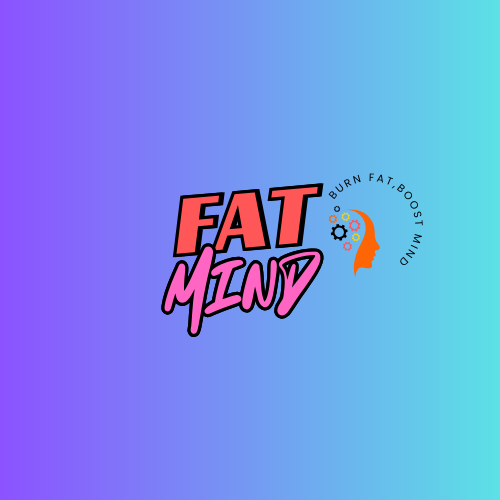Introduction: Understanding Emotional Eating
Emotional eating is a common challenge that can sabotage weight loss efforts. When stress, boredom, or sadness hit, many people turn to food for comfort. However, this habit often leads to overeating, weight gain, and guilt, making it harder to reach health goals.
The key to overcoming emotional eating is understanding its triggers, developing healthier coping mechanisms, and building mindful eating habits. In this guide, we’ll explore why emotional eating happens, how it affects weight loss, and practical strategies to break the cycle.
Why Do We Emotionally Eat?
1. Food as Comfort
- Certain foods, especially sugary and high-fat options, trigger the brain’s reward system, creating a temporary sense of pleasure.
- This makes people crave food when they feel stressed, anxious, or lonely.
2. Stress and Cortisol
- Chronic stress leads to high levels of cortisol, a hormone that increases appetite and cravings for junk food.
- Stress eating often results in consuming high-calorie, processed foods that lead to belly fat accumulation.
3. Habit and Routine
- If eating has become a coping mechanism over time, the brain associates food with comfort, even when hunger is not present.
- Late-night snacking, eating while watching TV, or grabbing snacks when bored are examples of emotional eating habits.
4. Lack of Sleep
- Poor sleep increases cravings for carbohydrates and sugar, making emotional eating worse.
- When tired, the brain seeks quick energy sources, leading to impulsive eating decisions.
How Emotional Eating Affects Weight Loss
1. Increases Caloric Intake
- Emotional eating often leads to consuming excessive calories, which get stored as fat, especially around the belly.
2. Slows Down Metabolism
- Overeating processed foods causes insulin spikes, making the body store more fat and slow down metabolism.
3. Leads to Guilt and Binge Cycles
- Emotional eaters often feel guilty after eating, leading to restrictive dieting, which can cause more cravings and binge eating later.
How to Stop Emotional Eating and Lose Weight
1. Identify Your Triggers
- Keep a food journal to track what emotions or situations lead to eating.
- Common triggers include stress, boredom, loneliness, fatigue, and anxiety.
2. Practice Mindful Eating
- Eat slowly and focus on the taste, texture, and smell of your food.
- Avoid distractions like TV, phone, or work while eating.
3. Choose Healthy Coping Mechanisms
Instead of eating, try:
- Exercise – A quick walk or workout can reduce stress.
- Deep breathing – Calms the nervous system and reduces cravings.
- Hobbies – Reading, painting, or listening to music can shift focus.
4. Balance Your Meals to Reduce Cravings
- Eat meals high in protein, fiber, and healthy fats to keep hunger levels stable.
- Avoid skipping meals, as hunger can increase emotional eating urges.
5. Manage Stress Levels
- Meditation and yoga can lower cortisol and reduce stress eating.
- Get 7-9 hours of sleep to control hunger hormones and prevent cravings.
6. Keep Unhealthy Foods Out of Reach
- Avoid keeping junk food, sugary snacks, and processed foods in the house.
- Stock up on healthy alternatives like fruits, nuts, and protein-based snacks.
7. Plan Your Meals and Snacks
- Meal prepping helps avoid impulsive eating and ensures balanced nutrition.
- Set specific times for eating to establish a structured routine.
Conclusion: Take Control of Emotional Eating
Emotional eating can be a tough habit to break, but by identifying triggers, practicing mindful eating, and developing healthier coping mechanisms, you can regain control and achieve long-term weight loss success.
The goal is not to eliminate emotional eating overnight but to make small, sustainable changes that help you develop a healthy relationship with food.
FAQ
1. How do I know if I’m eating emotionally or out of hunger?
If you are craving specific comfort foods (like sweets or chips) and not feeling physical hunger, it’s likely emotional eating.
2. Can emotional eating be stopped completely?
It’s difficult to eliminate it completely, but awareness and strategies can help you control it and reduce its impact on weight loss.
3. What are the best foods to eat to prevent emotional eating?
Foods high in protein, fiber, and healthy fats such as lean meats, vegetables, nuts, and whole grains—help keep hunger and cravings in check.
4. How long does it take to break the emotional eating habit?
It varies, but with consistent practice and mindful strategies, most people see progress within a few weeks to a few months.
5. Should I completely avoid comfort foods?
Not necessarily. It’s okay to enjoy treats in moderation, but focus on healthy alternatives and portion control to prevent binge eating.
